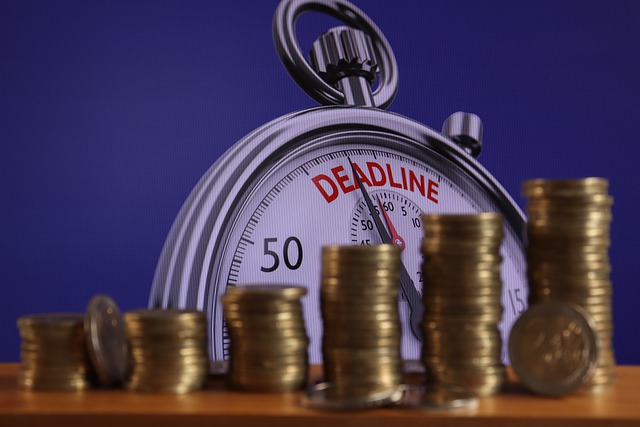Financial Literacy has failed to keep pace with digital literacy, points out an article in Times of India. I wholly agree.
The RBI action on money-lending apps and BNPL schemes highlights the lack of financial literacy and debt-awareness in an increasingly young target clientele.
HOW OFTEN DO YOU CHECK YOUR CREDIT SCORE?
Each of the four platforms – CIBIL TransUnion, Highmark, Equifax and Experian offer one free credit report in a year. The credit score might vary in all four reports, owing to different sources of data inputs and calculation methods. If the discrepancy is minor, you can take the average of all four. If the discrepancy is alarming, you need to take it up with the concerned credit rating agency.
However, Buy Now Pay Later schemes offer credit for a short period, which gets settled in 3-6 months. Monthly reports will give a better picture of your indebtedness.
ARE YOU REALLY DEBT-FREE?
You pay off your home loan and vehicle loan, and have never opted for a personal loan. You count yourself as debt-free and breathe easy.
But is that really so?
- Do you use credit facilities available on your mobile phones to buy things – both small and big? I hear you say you only have prepaid payment instruments (PPIs) like PayTM, GPay or Amazon Pay on your phone.
- How do you fund prepaid wallets?
- What is your oft-used mode of online payments – through debit cards, credit cards or BNPL schemes?
- How often do you pay late payment charges?
If you pay your credit card bills on the due date, and settle BNPL payments in the prescribed period, yes, you may be debt-free.
But if you pay only the minimum amount due on credit cards, or fail to make the complete payment within the prescribed period on BNPL, you are in debt.

WHY ARE MERCHANTS AND FINTECH ROOTING FOR YOU?
When you opt to pay through a credit card or BNPL scheme, the merchant gets full payment in return for a small fee paid to the bank or BNPL lender. This amount is the discount offered by merchants to the lender, for helping them get buyers.
The transactions thereafter happen between you and the lender, in line with agreed terms and conditions.
Both banks and NBFCs start earning when you default on payment on the due date. They charge rates of interest as high as 24% – 42% p.a. and their profitability is proportionate to rate of default.

Most of the fintech start-ups are heavily funded by investors, and are still incurring losses. The idea is to inculcate the debt habit in the young, digitally literate population. It opens up gates to future profitability.
But it drives a vulnerable population towards the debt trap, by offering digital convenience.
You qualify for a BNPL scheme, if you are between 18-55 years of age, belong to the salaried class, have full KYC and a bank account. They are fine if you have a source of income and an active money channel to repay instalments. It makes you feel good about your creditworthiness.
If you have a credit score lower than 750, and do not qualify for a credit card, you are tempted to use the easy route. You literally have money at your fingertips, without heavy documentation and hard credit checks.
WHAT SHOWS LACK OF FINANCIAL LITERACY IN BNPL USAGE?
The rate of default on BNPL schemes is 18.9% as compared to an overall industry average of 10.1%. People tend to use BNPL, just because it’s so easy to do it. Having multiple BNPL accounts makes monitoring difficult, leading to failure in timely repayment.
The trends set alarm bells ringing loud. It prompted the RBI ban on funding of digital wallets or PPIs through credit lines, offered by NBFCs through fintech.
MONEY IN THE BANK 2022
One can still use credit or debit cards offered by banks to fund the wallet. The regulator has reliable data on retail loans availed through banking channels. It also protects the borrower from harsh action by NBFCs in the process of debt recovery.
CHECK YOUR FINANCIAL LITERACY ON DEBT
- Do you hold any savings or current account with a debit balance?
- Have you paid all EMIs and taken a no-dues certificate from the bank, after repaying a loan? Records show that the last EMI often remains unpaid due to negligence or incorrect estimates of the total amount due and loan tenor.
- Have you ever given in to the Minimum Amount Due temptation?
- Do you realize that BNPL schemes do not offer rewards points or discounts as offered by credit cards?
- Do you check the difference between the offered price for payment in instalments, and the discounted price for full payment? The discounted price is the actual price. The higher price offered to you has interest baked in. So, it’s not really zero-interest as you are made to believe.
- You avail of credit lines in the belief that the present level of income will continue, or may even rise. What if it does not happen? Do you have a Plan B to repay?
- Do you believe instant money is worth the interest you will pay in future?
- Are you aware of the original lender, when you buy on instalments?
WHEN SHOULD YOU AVAIL OF SHORT-TERM DEBT?
- In case of emergencies where there is no other option
- If your money is invested elsewhere on a higher rate of return
- If you are meticulous enough to make all payments on or before the due date
- If you monitor all accounts with the help of an app or excel sheet, always know the amount you owe different lenders and the cost of such debt.
HOW DOES DIGITAL LITERACY HELP FINANCIAL LITERACY?
- Use apps for tracking expenses or splitting bills in a group
- Automate your payments and investments to prevent indiscriminate spending
- Use a good password management system to prevent frauds
- Learn how to use payment apps. Do not scan barcodes to receive money.
- Tokenize your cards on frequently used shopping sites, if you cannot remember card numbers
- Check transaction alerts regularly, and account statements through internet banking.
- Enroll in financial literacy courses online to improve your financial quotient.